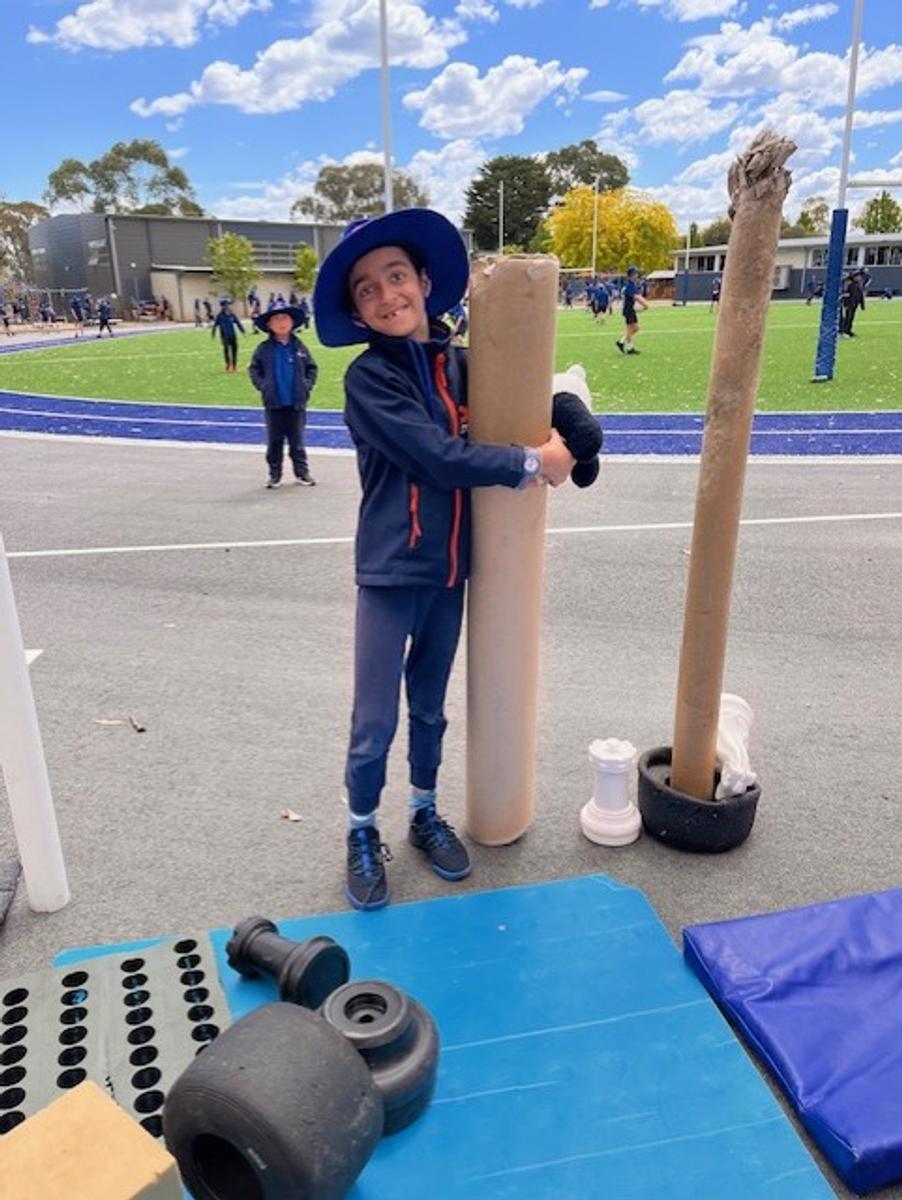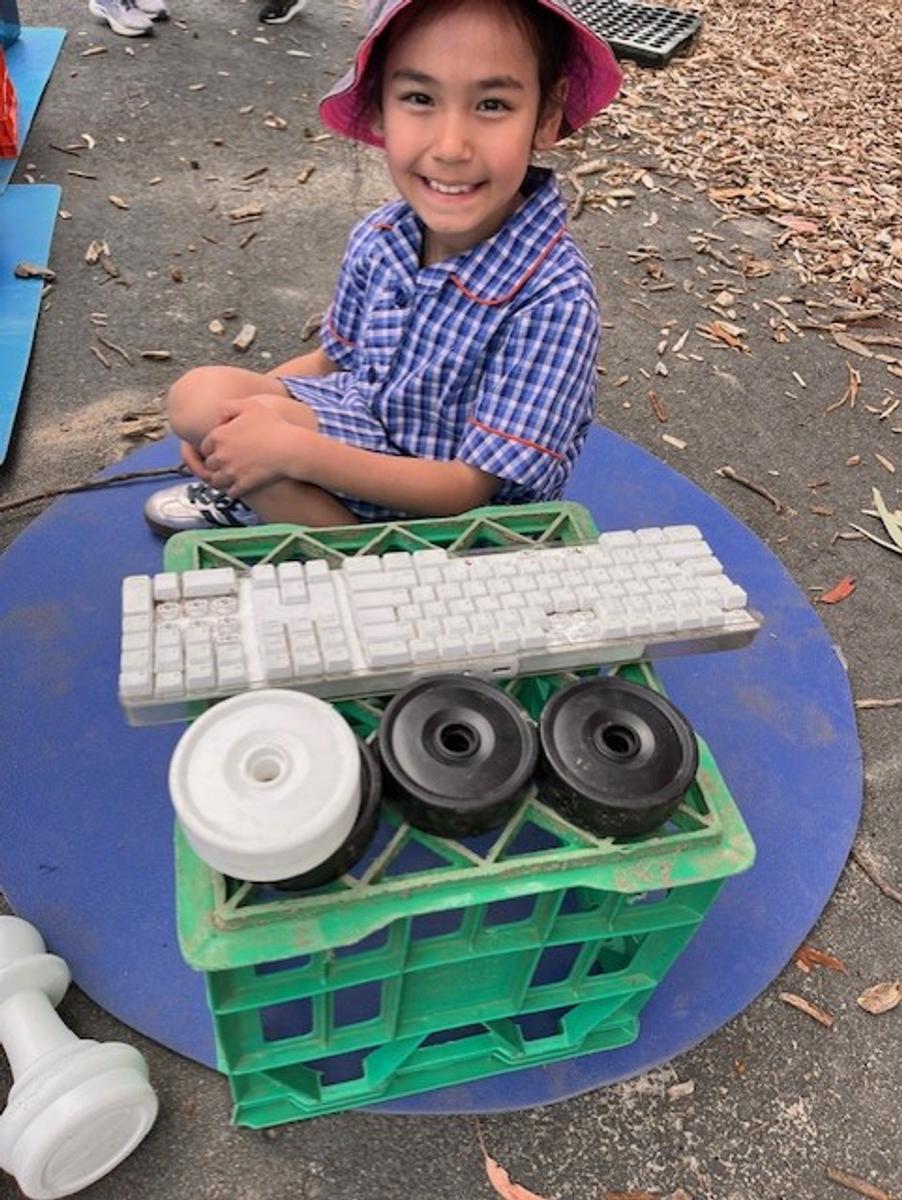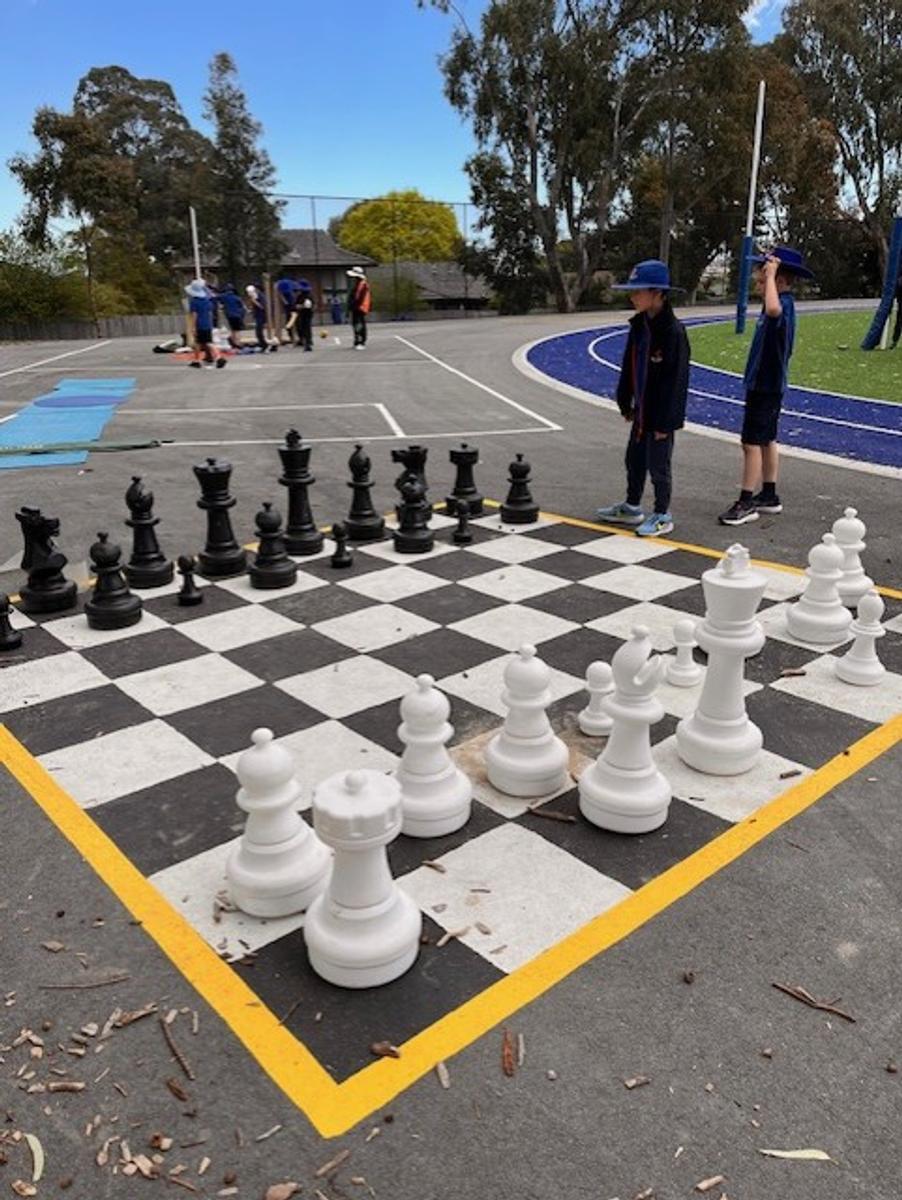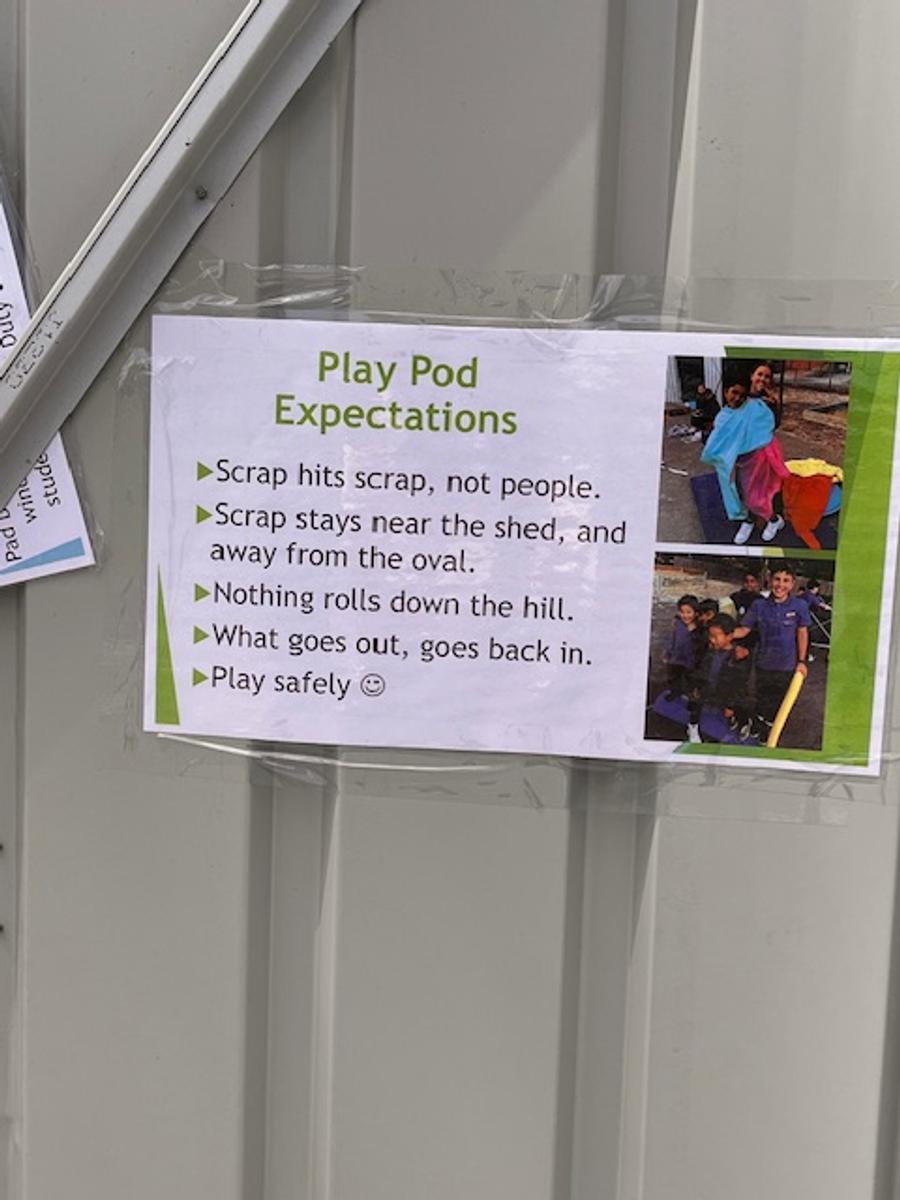Assistant Principal's Report
Katrina Spicer - Wellbeing and Inclusion

Assistant Principal's Report
Katrina Spicer - Wellbeing and Inclusion
This term we have introduced a new initiative in the yard at lunchtimes, called the Play Pod. Organised by Mr Lee and supervised by a yard duty teacher, the Play Pod is a collection of miscellaneous items and a giant chess set which are stored in the shed beside the oval. Students use the Play Pod equipment for open ended creative play, with no instructions to guide them, and a few simple rules to keep the children safe. We have restricted the Play Pod to certain year levels on certain days, but will soon be opening it up for free access to all.
We have seen some wonderful creative uses of the Play Pod equipment, including pretend kitchens and restaurants, mini mansions, slides, platforms, and even swings!
See the photos below of year 3 and 4 students enjoying the Play Pod earlier this week.


















Have you ever heard the term Executive Functioning? It refers to a group of mental skills that help us do everyday things like remember information, stay organised, follow instructions, and manage our emotions. These skills help us focus, solve problems, and interact well with others. For children, having strong executive functioning skills can make school days run smoothly, help them stay on top of their work, and make it easier to manage all their activities.
Some children may find executive functioning more challenging. If your child struggles in this area, it can affect how they manage tasks at school and at home. Here are some signs that your child might need extra support with their executive functioning:
Struggling to remember and use information needed to finish a task
If you notice these challenges, it could be helpful to talk with a paediatrician to explore whether there are other factors at play. In the meantime, there are things you can do at home to support your child and help them build their executive functioning skills:
Use visual reminders: Pictures or checklists can help your child remember what steps to take to complete a task, like getting ready for school in the morning.
Prepare for changes: Let your child know in advance if there will be changes to their routine, so they feel ready.
Keep things simple: Give them only the materials they need for a task. Too many options can feel overwhelming!
Organise with a system: Create a place for everything and keep things tidy. Label storage bins and help your child put things back in their spot after use.
Use the ‘I Do, We Do, You Do’ model: Show your child how to complete a task first, then do it together, and finally, let them try it on their own with your support.
Use timers and schedules: Help your child manage time by using timers or having a daily schedule to keep them on track.
Establish routines: Children thrive with regular routines, so try to keep things as consistent as possible.
By providing these supports, you can help your child strengthen their executive functioning skills and feel more confident in their ability to manage tasks at home and school.
Katrina Spicer
Assistant Principal for Wellbeing and Inclusion
katrina.spicer@education.vic.gov.au


By Dr Justin Coulson
Parenting involves a delicate balancing act: we want our children to grow into capable, independent decision-makers, but we also need to guide them with clarity, confidence, and care.
That's where the great parenting challenge lies - supporting autonomy without losing authority.
Here are five practical, evidence-based principles that can help.
1. Set Clear, Calm and Consistent Boundaries.
Children thrive when they know where the boundaries are. Limits provide a sense of security and predictability. But boundaries are most effective when:
Children are involved in solving problems or setting the boundaries themselves
Then it's up to us to ensure that:
They are enforced with calm and kindness
When parents explain the 'why' and invite their children to think through options with them, they foster understanding, empathy, and responsibility.
Tip: Avoid threats or emotional reactions. Instead, explain expectations ahead of time and follow through gently.
2. Set Up Consequences Through Shared Expectations
What we often call 'natural consequences' are, in reality, imposed outcomes - like withholding screen time until homework is done. That's not inherently wrong, but it must be set up collaboratively and communicated clearly ahead of time to avoid becoming punitive and creating relationship ruptures.
When limits are established through shared understanding - ideally as part of a conversation - they become a framework for accountability, not a punishment.
Important: Consequences should feel like a logical extension of the agreement - not an adult-imposed penalty.
3. Trust the Process of Internal Growth
When children feel supported by warm, autonomy-respecting parents, they are more likely to develop internal motivation over time. In one study, mothers who responded to their toddlers with patience and structure (see #1 above) - not control - fostered greater curiosity, persistence, and problem-solving skills in their children as they grew.
Ion other words, motivation isn't something we instill in our kids - it's something they build when we trust them enough to allow it.
Encourage reflection and allow space for growth - even when it's slow or messy.
4. Support Autonomy Through Choice and Voice
Autonomy support isn't about giving kids a free pass or unlimited choice. It's about helping them take the wheel with our helpful, supportive navigation from the passenger seat when they get a little lost or need direction. This includes:
By focusing on open-ended questions and meaningful dialogue, we move away from control and towards partnership. Children who feel respected are more likely to engage thoughtfully, cooperate, and take ownership of their actions. When children feel ownership over their choices, their motivation and cooperation increase.
5. Don't Give Up Because It's Tough
Consistency doesn't mean rigidity. But when we hold our boundaries with calm resolve - especially when it's hard - we send a powerful message: - "I believe in you. I believe you can do hard things." It also says, "We have values and standards in this family. You know them. You helped created them. I believe you can live them."
Growth takes time. But repeated, respectful reinforcement builds the skills and self-trust our kids need to thrive.
Parenting is a long game. Don't give up because it's tough. Stay steady because it matters.
Working with our children is always more effective than doing things to them. Autonomy and authority are not opposites - they're partners. Children flourish when they are given space to grow, paired with firm but compassionate guidance.
Yes, rules are important. But so is trust. And when children feel understood, supported, and believed in, they are far more likely to rise to the challenge.

